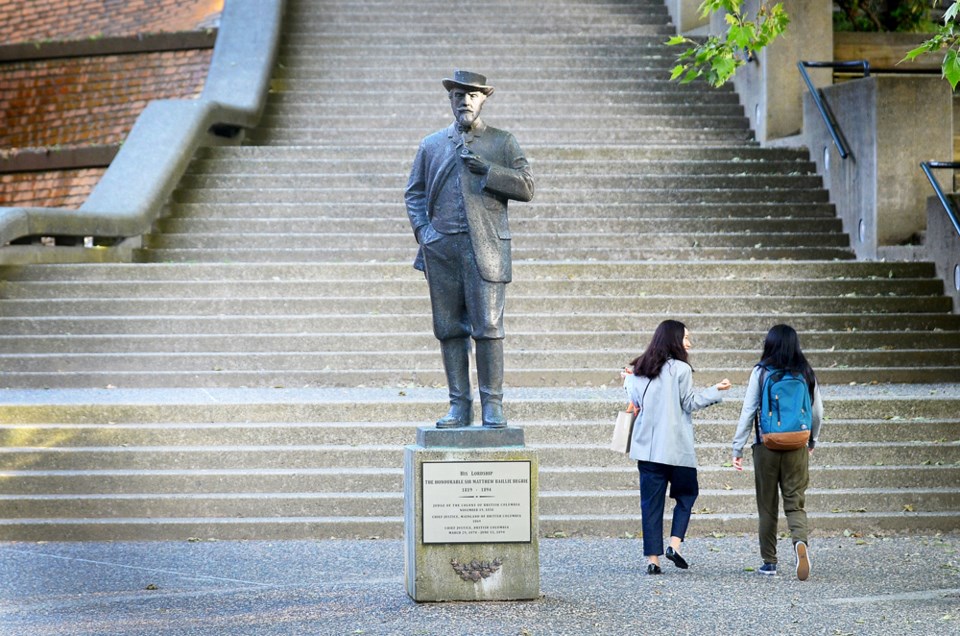In response to Donald Dunbar’s and Geraldine Harder-Anderson’s recent letters, I would like to comment my experiences with reconciliation. I’m white; let’s just get that out of the way.
Five years ago, I heard university students of all backgrounds exclaim about how angry they felt because they did not know about residential schools or the theft of land in B.C. They couldn’t understand why it wasn’t a part of primary learning. A few years ago, after hearing a news report on the Truth and Reconciliation Summary Report, my partner stormed in the door so angry I thought he would explode. “I knew it was bad,” he exclaimed, “But they starved and experimented on kids in Canadian residential schools. On kids! And the government knew! I had no idea.”
In the last year, I’ve watched my New Westminster friends’ eyes bug out when they learn the last residential school in British Columbia closed in 1996. Throughout this time, I’ve also listened to Indigenous young people share how thankful they feel to finally have a vocabulary to process the trauma they’ve experienced and the gratitude they feel knowing others are learning this vocabulary. It’s not about ancestors; it’s about this generation.
Reconciliation is slow, challenging, sometimes frustrating conversations, and it’s working. I had no idea who Judge Begbie was until these conversations started happening. The conversations inspired me learn about a nuanced historical figure. A person willing to learn Indigenous languages for his court was certainly unique for his time. Does that excuse the blatant racism of decisions, colonialism and the skewed power dynamic of the time? No.
I agree we should focus on the present. In the present, Canadians are making choices that tell our elected officials what we do and do not care about. Apparently, Canadians don’t care that many of their citizens don’t have clean drinking water or the health care they need. We tell our government officials it’s OK to underfund services to vulnerable groups. This generation is causing hardships to this generation. The hardships caused by our choices appear on our nightly news, but we choose not to fix them. Hopefully reconciliation will help our current choices.
I am glad we get to have a debate about New Westminster’s history in a moment of rapid redevelopment and change. I am glad reconciliation has inspired me to learn about Begbie and more about how B.C. law came to be.
But I wish I knew other names as well. For example, I’d like to learn more about the founders of the Native Brotherhood, who did all they could to challenge racist and unfair fishing laws in B.C., and I want to know more about the Chinese immigrants and citizens that helped form this province. And we should recognize the experiences of others: from the Sihks on the Komagata Maru to the recent wave of Syrian refugees – and all those in between. Knowing these realities doesn’t take away from my personal European heritage. I think we can learn to be a stronger community by honouring, challenging and recognizing all the members of our past generations. As a small start, let’s keep going towards making the Chinese cemetery under NWSS part of our popular urban landscape.
And I think Begbie’s statue is asking us to do something interesting. Let’s not just remove it, but let him be joined by an Indigenous leader and an Asian leader. All three groups were instrumental to the era that formed what we now call British Columbia. And then let’s make other groups part of the memorialized city landscape and celebrate statues that inspire us to have challenging conversations. I will donate $100 towards those statues.
Jennifer Wolowic is a New Westminster resident.



